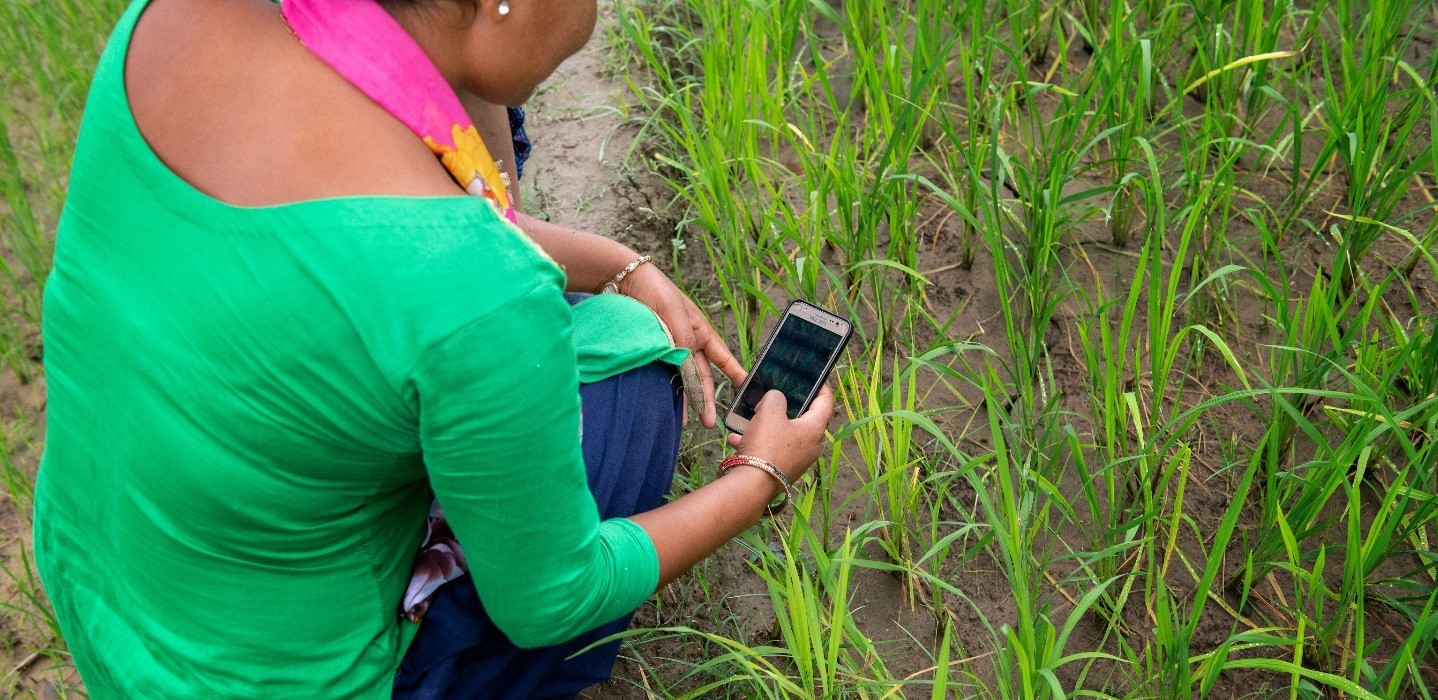Taking stock of IFAD’s digital agriculture efforts in the Asia-Pacific region
IFAD Asset Request Portlet
Asset Publisher
Taking stock of IFAD’s digital agriculture efforts in the Asia-Pacific region
Estimated reading time: 3 minutes
ICT4D (Information and Communications Technologies for Development) solutions can provide a wide range of benefits for small-scale farmers. They can, for example, help farmers increase their yields through modernized farming practices; adopt locally suited seeds and fertilizers, effectively protecting crops from diseases and pests; adapt to climate change; sell their produce at the best possible price; and access financial services that can increase their opportunities and reduce their risks.
However, access to these technologies remains one of the biggest challenges to their widespread adoption. For ICT4D to be transformative, these technologies and the related infrastructure must be not only available to small-scale farmers and rural people, but affordable. In turn, rural households must be aware these tools exist and have the capacity to use them.
In the Asia-Pacific region, for example, the use of ICTs and digital tools has been increasing steadily across rural areas for the past two decades. Nevertheless, the ongoing COVID-19 crisis has imparted a sense of urgency in accelerating this trend. The need to increase the resilience of the region’s food systems has been broadly recognized, and investments in ICTs and digital tools are increasingly seen as critical for this strategic priority.
Against this background, IFAD is accelerating its support for the use of ICTs and digital tools among small-scale farmers in rural areas across the world. Its newly developed ICT4D Strategy now forms a core part of the current Strategic Framework. As part of its efforts to build up support in the Asia-Pacific region in particular, IFAD recently undertook a cataloguing of ICT4D solutions within its regional portfolio.
The state of IFAD’s ICT4D efforts in the Asia-Pacific region
Our cataloguing exercise identified a total of 50 ICT4D interventions across 14 countries in the Asia-Pacific region.
The results show clear evidence that the design of, and access to, digital technologies and ICT solutions represents an important and growing theme within the broader regional agenda. Moreover, our portfolio shows increased awareness of the importance of integrating these technologies into the delivery of services that are essential to the viability of small-scale producers’ businesses. These solutions range from a digitalized quality and safety traceability system for pork value chains in China, to the use of drones for combating illegal and unregulated fishing in the Philippines, to a software application that helps track the progress of women’s self-help groups in India – to name just a few.
However, we also identified some critical gaps and barriers that need to be addressed for these interventions to realize their full potential. For example, IFAD’s ICT4D efforts in the region remain, with few exceptions, focused on supporting the design of specific digital tools and their adoption by small-scale producers. There is limited attention devoted to gaps at the strategic and ecosystem levels, such as coherent national agricultural digitalization strategies and the enabling of policy and regulatory frameworks.
There is also limited attention on the development of strategies for improving digital literacy throughout the region’s rural and remote areas. Addressing this gap requires working in partnership with national and regional farmers’ organizations, civil society and private sector organizations, extension services, and the academic sector.
We must also increase our efforts to encourage network coverage and connectivity throughout these areas, possibly by creating incentives for the private sector to do so. This inevitably requires some degree of government interventions, including appropriate regulations and smart subsidies.
Looking ahead: ICT4D solutions across the globe
IFAD recognizes that digital agriculture is indispensable for promoting food security and sustainable, inclusive rural transformation around the world. As always, we remain focused on the last mile, with the vision of creating rural societies in which people have inclusive access to ICT-enabled services and solutions for achieving food security and prosperity.
In furtherance of this vision, we are looking into completing additional stocktakes of ICT4D solutions across our global portfolio. We hope this will provide insights on the status of our projects that include digital agriculture elements, generate ideas and resources for cross-pollination and collaboration, and bring opportunities for further engagement. We also hope to advance the global knowledge on the impacts of these interventions, including filling in data gaps.
IFAD is well positioned to advance the global ICT4D agenda in terms of agriculture. Literacy, particularly digital and financial literacy, will help move the digital agenda forward among rural communities and make it easier to develop sustainable digital offerings. IFAD will continue to invest in areas that can help move these efforts forward, such as public-private partnerships and capacity development initiatives. At the same time, we will deepen our approach to thinking in terms of digital priorities, and we will continue to work with governments and other development partners to develop digital agriculture interventions that have great transformative impact.
Read the full report on digital agriculture in the Asia-Pacific region.
Publication date: 22 June 2021
